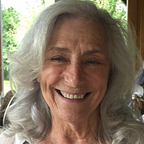Estonia’s Oscar® 2019 Entry for Best International Feature ‘Truth and Justice’
A saga of a family settling the wilderness in Estonia in from 1870 to the 1890s. Satisfying in its complexity, the hero, Andres and his young wife struggle to tame the swamp and create a farm which their offspring will inherit. Their love and his upright honesty are tested as his crooked neighbor causes constant court fights, they work ceaselessly and the children his wife Kroot bears are all girls.
When Kroot finally gives birth to a male heir, and loses her life in the process, Andres becomes staunchly entrenched in fighting for was he considers truth and justice. While originally wanting to defend what he considers right, he eventually loses his vision of right and wrong, and manages to cheat his neighbor who has become his archenemy. Justice comes to mean rights of ownership and stewardship over his land. His idea of what is right takes him into a different direction from what he and his young wife had originally planned, and in the end, he must retrace his steps to rediscover what was the purpose of his lifelong journey.
Truth and Justice is based on a novel written in 1926 by Estonian novelist Anton Hansen Tammsaare, and is one of the foundational works of Estonian literature and required reading for all high schoolers. The entire social epic captures to evolution of Estonia from a province of the Russian Empire to an independent nation. The feature, however only deals with the rural society and personal struggles of the family, depicting his father and mother and himself as their son.
The film has been seen by 20% of the Estonians making it the most watched film ever in Estonian cinemas. Considering Estonia only makes five films a year, which play against American blockbusters, this is all the more surprising. The director, Tanel Toom at 37 has directed ten short films and chose this monumental subject as his debut feature.
In 2010 Toom won the Best Student Academy Award® for The Confession which went on to be nominated in 2011 for an Oscar® for Best Live Action Short Film category.
We spoke over lunch about how it was not his original intention to begin with this film, but problems kept the other less ambitious films from getting made. Luckily for him, he missed reading it in high school and so the story was not spoiled on him as such required reading is so often spoiled for young adults who are actually too immature to grasp the larger meaning of such national epics. (I think of how I hated Tale of Two Cities and Les Miserables because we were forced to read them in high school.) He regretted not having read the book and promised that he would, but only when he could give it 100% of his attention. That was nine years later after he had graduated from two film schools, one in Estonia and the other, the UK’s National Film School. When he was halfway through the book he realized it could be a big-screen drama. Fifteen years later he was making the movie.
“The main character, Andres, is not someone you love, but…” said Tanel, he realized that “you did not love the protagonists in films like There Will Be Blood or Taxi Driver, but you became emotionally involved and went with them on their journey. The protagonist has to want something. I am not that different from that guy. I am like him in my making films. Making films is so totally emotional that I too am not present for loved ones so often either. That is a scary realization and hopefully, as artists, we can think and analyze; we can recognize the problem and will take the time to be with family and dear ones.”
“There was a best seller five years ago — an American book about a nurse interviewing old people about to die. All say they regret not having said ‘I love you’ more often; most said they should have spent more time with their family. None said they should have worked harder. When your days may end, you do not know, so …”
“Love was in Andres’ work. Maybe it was not for his wife and family…Redemption could be there in the love and in his righteousness…this is the journey we follow with this satisfying saga in which being right becomes more important than being truthful and justification is sought in the Bible.”
Tanel’s previous shorts were also concerned with religion.
“What fascinated me was the opportunity to juxtapose these precise and subtle details with the passage of time, sweeping vistas of nature, epic scenes of death and character change over the course of a lifetime. This is what makes me passionate about filmmaking. The contrast between intimate and vast, psychological and philosophical, compelling rhythm and complete silence…Our goal with this film was to tell a remote story with compelling means and contemporary form, show that problems like overworking, lack of human connection, burying oneself into the fulfillment of a distant dream instead of enjoying what is available now are still as actual now as they were back then.
— -** —
The film is reminiscent of Jan Troell’s The Emigrants in its epic portrayal of a young couple working to make a living from working the land.
The film has no international sales agent as yet.
A note about the producer, Ivo Felt who co-founded his production company Allfilm in 1995: His film Tangerines was nominated for the Academy Award and Golden Globe in 2015, and his film The Fencer was nominated for a Golden Globe in 2016. His current slate as a producer includes four feature films and a documentary in production.
